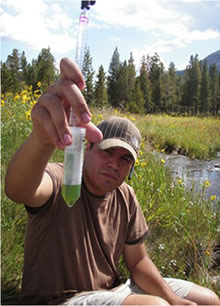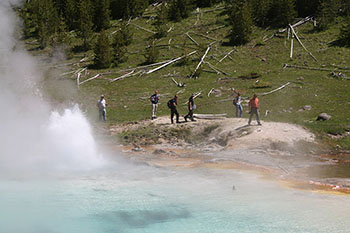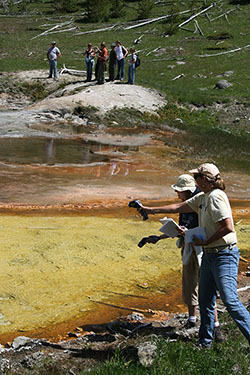Academic Programs
|
TBI is currently composed of eighteen faculty representing TBI faculty attracts top-tier undergraduate and graduate students |
 |
Summer Course
Each summer, The Thermal Biology Institute offers a course through the Master of Science in Science Education (MSSE)
LRES 557-MB 547-01 Thermal Biology in Yellowstone National Park (2 credit).
This course will provide a survey of the ecology of important organisms common in
thermal habitats of Yellowstone National Park, including a review of different life
forms and the physical and chemical habitats that define their environment. The course
is structured to provide (1) a basic understanding of the ecology of a variety of
life forms in thermal habitats, (2) a survey of observational techniques and hands-on
activities appropriate for science educators, and (3) field trips to visit and characterize
several geothermal habitats environments. Fundamental principles of thermal biology
will be emphasized during lectures on Monday, Tuesday and Friday. This class will
have a two day field trip on Wednesday and Thursday to Yellowstone National Park,
with an overnight TENT camp experience at Madison Campground. Two days in the field
will be used to visit, discuss, sample and characterize diverse geothermal habitats
in Yellowstone National Park. .
 |
 |
